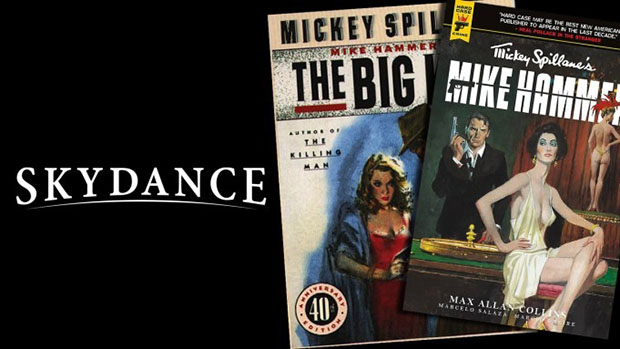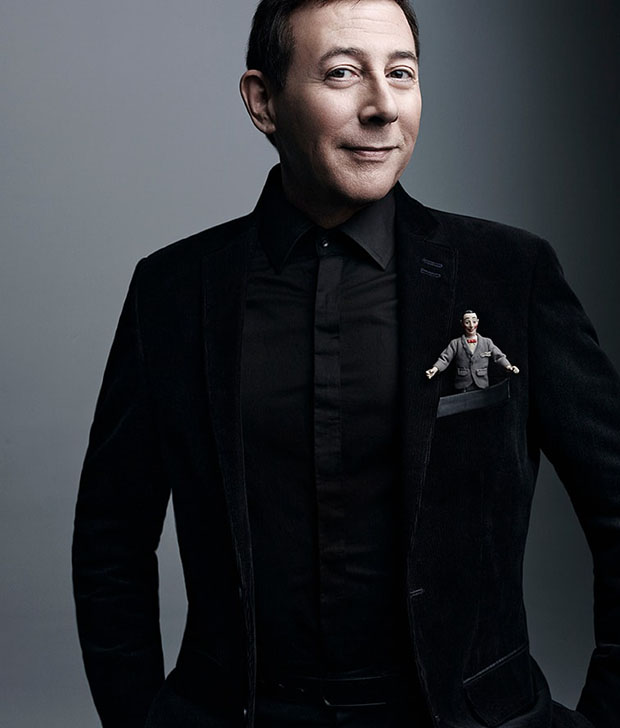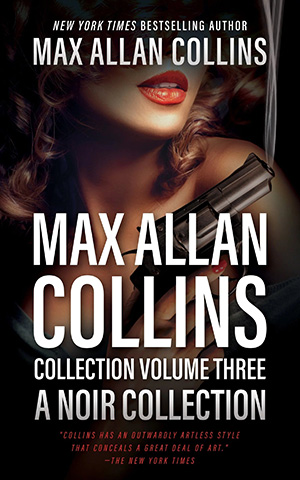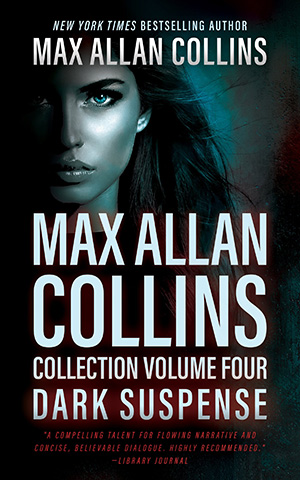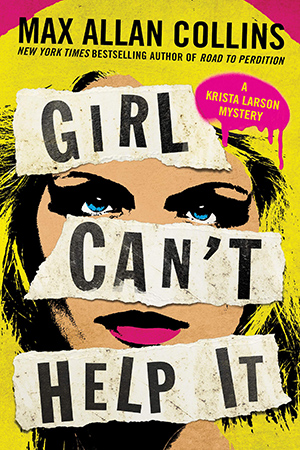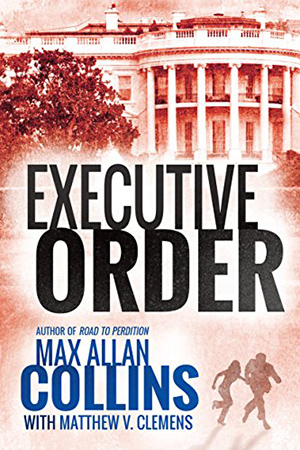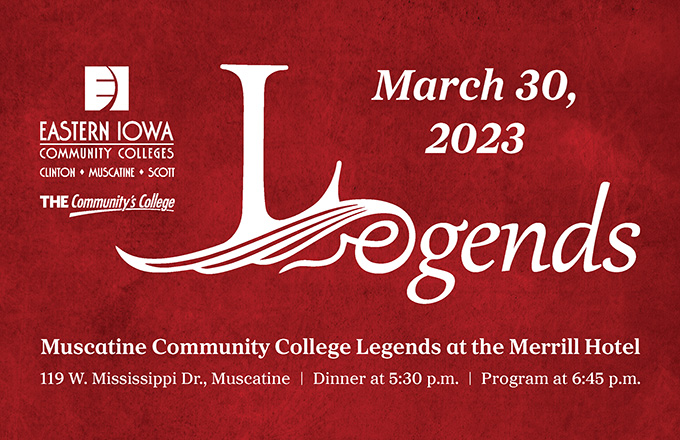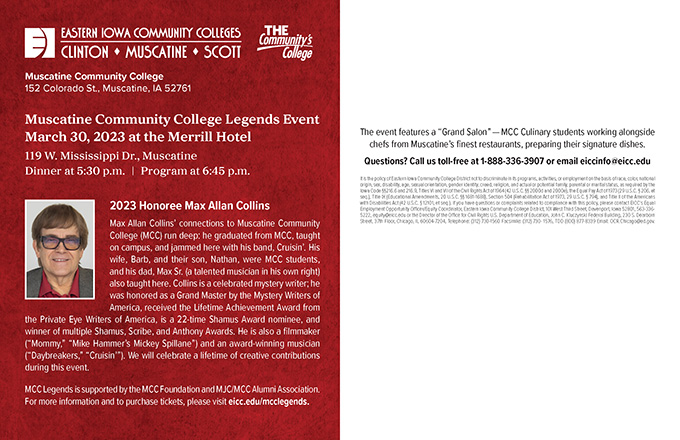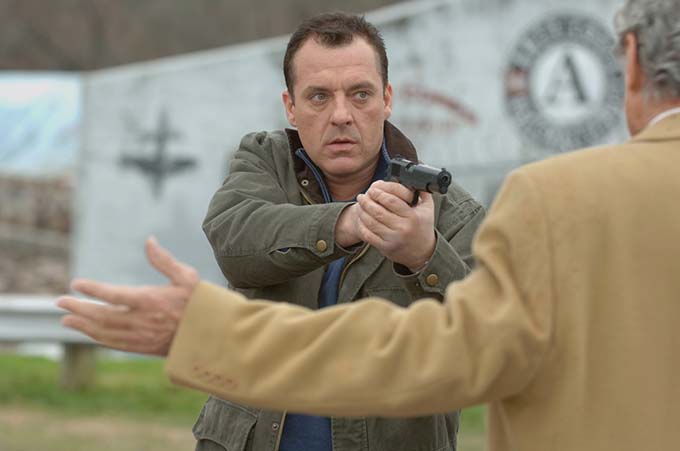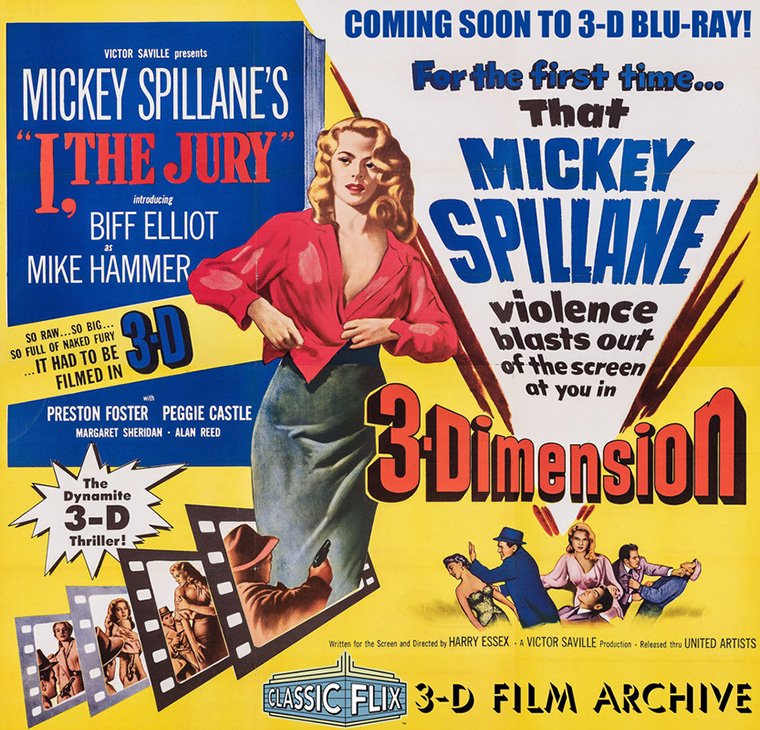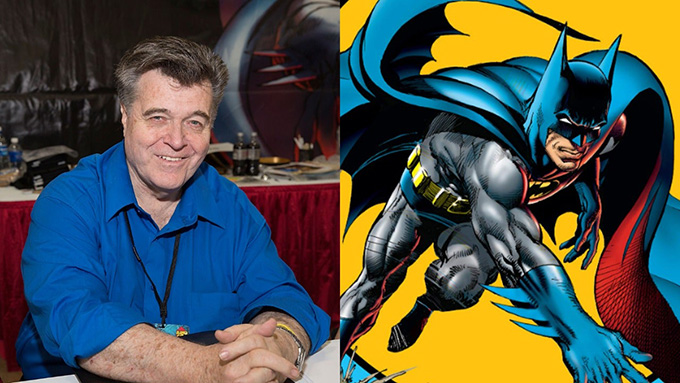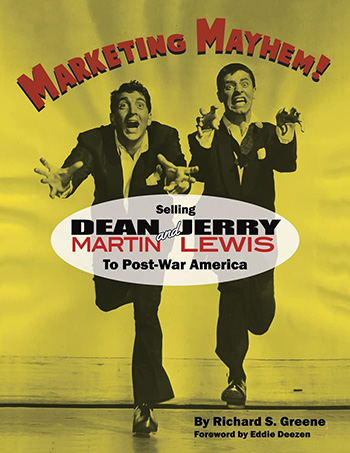First, I want to share two very good deals with you.
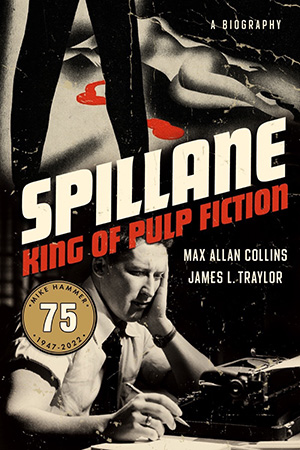
Spillane – King of Pulp Fiction by Jim Traylor and me is 50% off (!) at Barnes & Noble. Going for a mere $13.47 for this hardcover thing of beauty. If you’ve been waiting to spring for a copy, now’s the time.
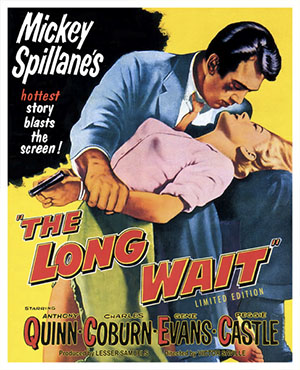
The Long Wait, one of the best Spillane movie adaptations (it stars Anthony Quinn!) is on sale, a combo 4k and Blu-ray package. Even if you don’t have 4K, the Blu-ray alone is well worth the price. I did the commentary and provided an extensive gallery of stills. From Classic Flix, $21.98 (regularly $39.99).
I’ve fallen a little behind writing Quarry’s Return because of what I’d been told would be a simple out-patient procedure. First of all, that may have been simple for the surgeon but for me it was a long day of assorted inconvenience and unpleasantness.
Then I was sent home with a complication waiting to kick in — bleeding that wouldn’t stop — but an ER trip the next day to get some stitching up (in a good way) has me doing much better. But I have had to recuperate all (and some of next) week.
For the first time since 1965 (!) I had to cancel a band job (actually, we were able to swap places on the roster of Second Sunday concerts here in Muscatine, allowing me to trade August for September (not a bad trade generally). Crusin’ will appear at 5 pm on Sunday September 10.
Robert Meyer Burnett, one of my two favorite pop culture podcasters, discusses Friedkin below. He also discusses Friedkin on his weekly Midnight Musings, but that goes far afield including a discussion of the anniversary of Hip Hop.
Here’s my mini-memoir about Friedkin, which I shared with Burnett the night of my hospital procedure – hence a tad fried.
My wife Barb and I were guests of Friedkin by way of his then-wife Kelly Lange, the LA newscaster. Miguel was going with (they were engaged at the time) Kelly Lange’s daughter, whose name was also Kelly (her mother’s real name was, I believe, Dorothy). Kelly Jr. was funny and sweet and a babe, and I thought Miguel had done very well for himself. No idea what happened there, but Miguel and BIll Mumy and Steve Leialoha and I were at the time in the process of putting our band Seduction of the Innocent together to play at San Diego Comic Con. We’d go on to perform there around half a dozen times and at a few other comics cons and once for a comic book shop that rented out the Ferris Wheel hall for us at the Santa Monica Pier. One of our roadies was Brandon Lee.
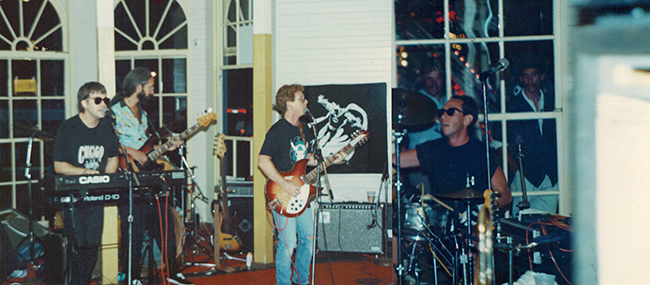
Seduction of the Innocent, Santa Monica Pier
I am, as you know, from a small town in Iowa. I never did the con circuit, just San Diego Con. There is little reason why I should have otherwise encountered anybody famous. But my early Nate Heller novels had ridden my comic book Ms. Tree’s coattails to some geek recognition; so had the fact that I was the second guy after Chester Gould to write the Dick Tracy strip. How Bill, Miguel, Steve and I got together is for another time. (Chris Christensen came a little later.)
Where he hell is Billy Friedkin in this? Patience.
Kelly Jr. gave us a tour of Friedkin’s house. He and Kelly Sr. were away. (Honeymooning, my memory wants me to believe.) I remember a vast ornate bed with black sheets. In the living room were a few huge framed vintage movie posters from famous films…of the ’20s and ’30s.
By way of thank you, I left a copy of the first Heller, True Detective, for Friedkin with a fannish inscription. And of course I hoped he’d read it. He got in touch with me by phone, leaving a message, wanting to inform me of something. For that to mean anything, I have to describe the first section (briefly) of True Detective.
Young police detective Nate Heller is drinking rum out of a coffee cup in a speak when the cops known as the Two Harrys come in and grab him to come along on a bust, telling him nothing more. They are Mayor Anton Cermak’s two-man “Gangster Squad.” In a sports book on a high floor of a Loop building overlooking the Chicago River, the Two Harrys roust Frank Nitti himself. They shoot him several times in the neck and back, leaving him to bleed and die. They send the horrified and very pissed Heller (he will have to share the blame for this!) in to make routine arrests in the sports book, but a guy heads for a window and the fire escape. Heller tells him to stop and he doesn’t and Heller shoots him (“He wasn’t in the window anymore”). Heller decides to quit the force, not because it’s corrupt or even because for the first time he’s killed somebody (the graft is why he had a rich uncle get him on — it’s the Depression) and, in exchange for providing building security for his childhood friend, boxer Barney Ross, he gets a one-room office over Barney’s speak (aka Blind Pig) where he works as a PI (and sleeps on a Murphy bed).
Where the fuck is Friedkin?
So the two Harrys come around in the middle of the night at Heller’s flop, having heard Heller quit the force, and drag him to see Mayor Cermak at the Congress Hotel. Heller, who is young and tough and has scruples when necessary, is asked by Cermak why he (Heller) quit the PD. Heller turns down an offer to become the third man on the mayor’s Gangster Squad; but promises if his new one-man PI business is left alone, he’ll say whatever is necessary at the inquest and later trial. Having made this deal, Heller leaves but knows he’s now on Frank Nitti’s shit, er, hit list. Middle of the night, he’s hauled by Outfit gangsters to a suburban hospital to see Nitti…WHO HAS SURVIVED (historically, this happened — the whole Nitti roust is real, except for my substituting Nate Heller for the compromised young cop). Nitti gives Heller a pass, because it’ll give him an inside man with Cermak, who is soon to head to Miami (where of course history thinks the assassination target was FDR when it was actually Cermak).
That’s all 1933.
Around 1987, William Friedkin contacts this punk kid mystery writer in Iowa who somehow — it’s crazy — not only slept in his guest house, but knows about his Uncle Harry! Harry Lang, who was a Chicago cop in the ’30s! And he wants to know all about the Nitti hit. Friedkin told me his uncle was exactly that guy, the Harry Lang was who half of the two Harrys (I used photographs in the book, and Friedkin said he was flipping through and saw his uncle’s picture!).
There was talk of Friedkin making True Detective but that obviously didn’t happen. He was making TV movies at time — C.A.T. Squad…with Miguel.
Now they are both gone.
There’s a bittersweet postscript: Jason Miller was one of the stars of my little indie feature Mommy.
Heath Holland (my other favorite pop culture podcaster) at Cereal at Midnight discusses collecting burn-out, and I am given an extensive shout-out.
I wrote Heath with the following response:
I am honored to have been invoked on Cereal at Midnight. Got a real kick out of it.
And what an excellent, frank discussion of a real problem. I wrestle with the collecting bug constantly. And, despite a decent income, I spend way too much. My wife sees me watching you or Burnett or another three or four unboxing type podcasts and says, “This doesn’t mean you’re getting more ideas about what to buy, does it?” Not in the most loving voice.
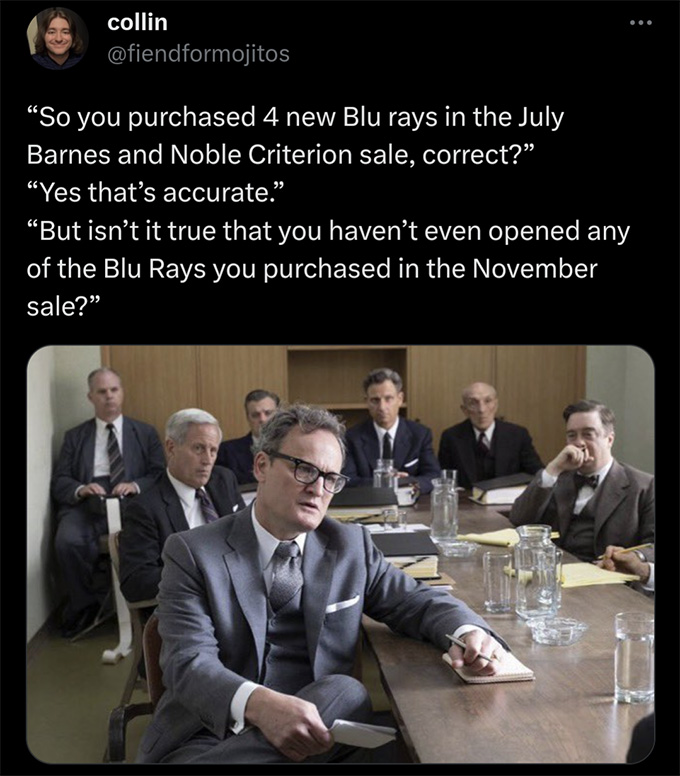
What resonated with me most was one word you used: obligation.
This is when your collection starts to own you. This sounds ridiculous, but the main thing I am trying to do is not buy anything I don’t like or am probably not disposed to like. For example. Jess Franco — I have bought a lot of Franco stuff because of the enthusiasm of so many for his work in this hobby. There’s a line of European horror that came out some time ago that I was (wait for it) attempting to get every numbered spine, which meant every damn release. That line-up included at least half a dozen Franco titles. How could I not own them? They had numbers on the spine that I needed!
But I freed myself and got rid of them. Jean Rollin is constantly hyped and I know smart people who like those movies, but I am not one of them. Yet I bought them (and have since dumped them). I see podcasts from people, like Brandon Chowen (I think is the spelling), whose enthusiasm I get a kick out of…but he’s clearly not watching much of what he’s buying. He’s collecting stuff by directors he’s heard are good and intends to watch one day…but shouldn’t we be collecting because we like something already? Or contains cast/director/writer/genre that means we’d probably be inclined to like it?
That doesn’t mean I am entirely rational. I will get a film noir I don’t particularly like, because that’s a collection I want to maintain. I will hold onto any Hitchcock title, whether I like it or not, because I generally love him and I have a completist streak. Ditto Joseph H. Lewis or Sam Fuller or Brian DePalma. But if it’s a journeyman director, who is sometimes good, sometimes okay, sometimes bad, why not keep just the good?
And as you point out — time is distressingly, frustratingly limited. I am in my seventies…who am I trying to kid about ever watching a fraction of what I’ve collected?
This is art we’re collecting, not baseball cards.
But it’s hard. So hard. I hated To Live and Die in L.A. when I saw it in the theater. Hated it so much it pissed me off. And then I hear Rob Burnett enthuse over it, rhapsodize over it…and I ordered a copy. Arggggggh!
That’s the new rule I want to follow, and it is stupidly obvious: only buy, only keep, what you like. You don’t even have to love it. But at least like it.
This is a long overdue (in my biased opinion) discussion of why I deserve some credit for the popular Batman character, Harley Quinn.
And the same site, apparently taking the unpopular stand of defending my Batman run, discusses my Robin and how he and I are misunderstood.
Finally, here’s a great review of Fancy Anders Goes to War.
M.A.C.
